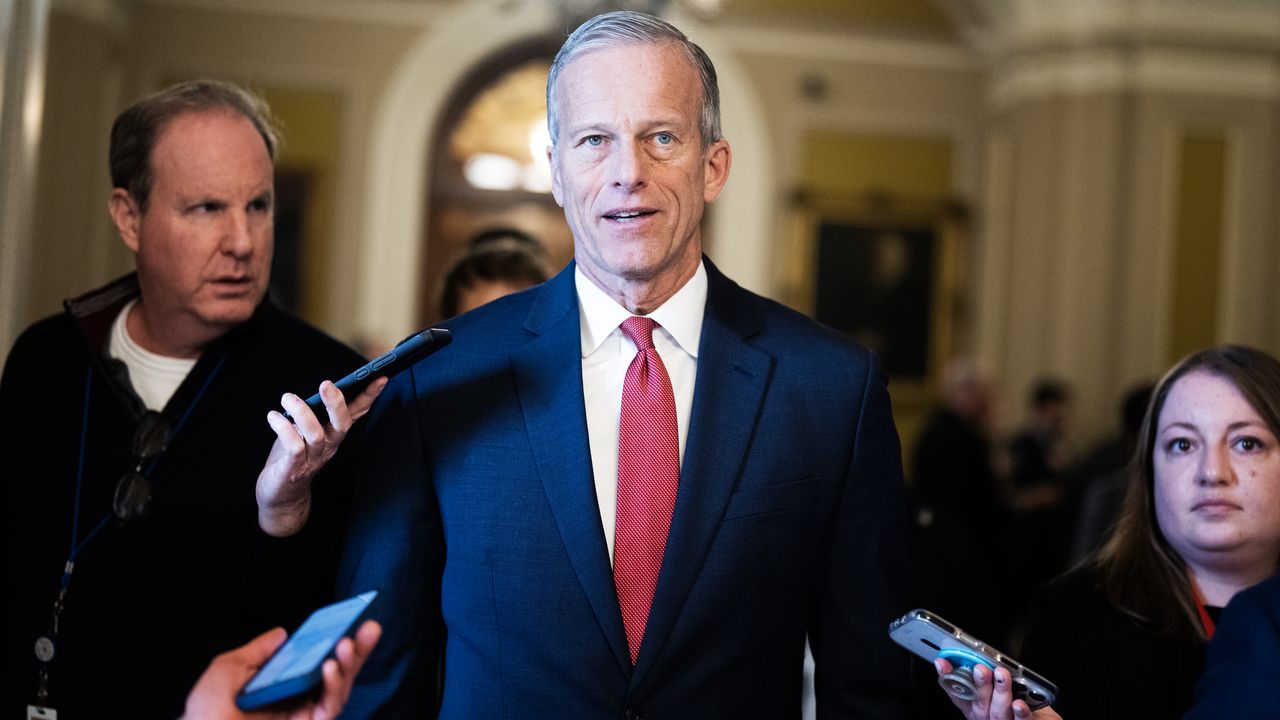
The Senate adopted a budget resolution early Friday after an all-night "vote-a-rama" that would provide more than $300 billion dollars for border and defense.Why it matters: Majority Leader John Thune (R-S.D.
) has barreled forward with his backup plan as Speaker Johnson (R-La.) scrambles on his mega-package that would also make good on President Trump's tax promises.The measure passed 52-48 after Democrats raised dozens of unsuccessful amendments, including one on IVF.

Sen. Rand Paul (R-Ky.) was the only Republican to vote against the budget resolution.
Between the lines After 25 rounds of voting on amendments, Senate Minority Leader Chuck Schumer (D-N.Y.) said Republicans "were forced to go on record and defend their plans to cut taxes for Donald Trump's billionaire friends.
""What happened tonight was only the beginning," Schumer added. "This debate is gonna go on for weeks, and maybe months. Democrats will be ready to come back and do this over and over again.
"Sens. Susan Collins (R-Maine) and Josh Hawley (R-Mo.) voted with Democrats on failed amendments blocking Medicaid cuts.
Zoom in: The resolution provides $150 billion in additional defense spending and $175 billion for border. It also changes energy policy.The package will be offset by spending cuts and increased energy revenue.
What to watch: Getting both chambers to agree to a budget resolution is just the first step in the reconciliation process, which allows the Senate to get around the 60-vote filibuster for budget-related measures.The House and Senate have yet to agree on the first step.Once they do, they will also have to reach agreement on all the particulars — the funding, spending cuts and policies.
The big picture: House and Senate leadership have been divided over how best to go about passing Trump's biggest legislative priorities through budget reconciliation.Speaker Johnson insists the best chance of getting major wins through his razor-thin majority is if everything is in one package.Senate Republicans want to move faster on border and defense spending and give more time for negotiating a host of complicated and contentious tax issues in a second bill.
Trump sided with Johnson this week, preferring "one, big beautiful bill." Still, Vice President Vance gave the Senate the green light to move forward with their own plan as backup.The other side: Democrats tried to turn the budget "vote-a-rama" into a referendum against Trump's first month in office.
Democrats mainly focused their amendments on cuts made by the Department of Government Efficiency (DOGE) and Trump's federal funding freeze.While none of their amendments passed, it gave Democrats an opportunity to get Republicans — especially moderates facing reelection next year — on the record about supporting Trump's agenda."In 2026, these amendments are going to play a valuable role," Senate Minority Leader Chuck Schumer (D-N.
Y.) told Axios in an interview earlier this week..















